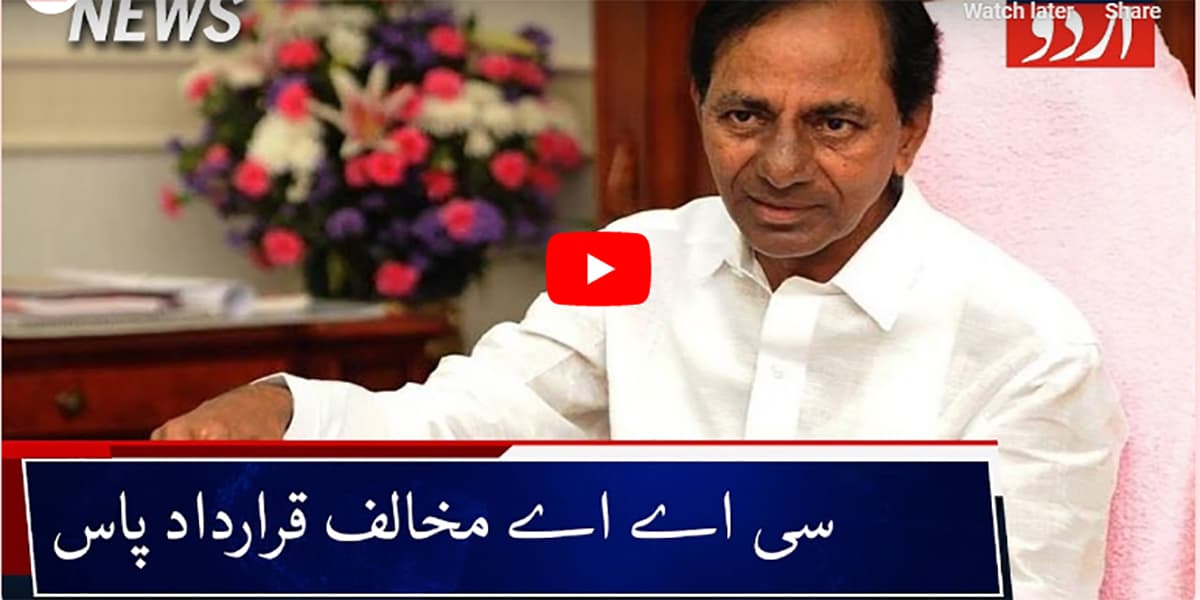Hyderabad: The resolution adopted by the Telangana State Legislature on Monday opposing the CAA, NPR and NRC, is a strongly worded statement against the divisive politics of the Union government. “By discarding ‘secularism’ and ‘equality before law’ in our citizenship laws, a theocratic State may be institutionalised,” the resolution, move by Chief Minister K Chandrashekhar Rao in the State Assembly, said.
The resolution, pointing out that the CAA makes people belonging to certain religions eligible for Indian citizenship while excluding others solely on the basis of religion, said citizenship on the basis of religion violates not only the principle of equality enshrined in Article 14 of the Constitution but also the principle of secularism which constitutes the basic structure of the Constitution. “There have been concerted efforts to tinker with the inclusive and non-religious nature of the Indian citizenship through the CAA, NPR and NRC. This will endanger the lives of vulnerable groups who do not possess adequate documentary proof for citizenship,” the resolution said.
The resolution said there are serious questions as to the legality and constitutionality of CAA, NPR and NRC. “For the first time in India, the CAA introduced a religious test to acquire Indian citizenship while providing an accelerated path to citizenship for non-Muslim citizens of Afghanistan, Pakistan and Bangladesh. The enactment of CAA calls for a combined effort from all Indians, regardless of religious beliefs, to protect our founding values and preserve secularism in the country,” the resolution said.
Stating that the CAA must be understood in combination within the NPR, the resolution goes on to say that NPR would be conducted under the “Citizenship (Registration of Citizens and issue of National Identity Card) Rules, 2003.” “The Ministry of Home Affairs in its annual report of 2018-19 states that the NPR is the first step towards creation of the NRC. According to statements made by Union Ministers and Assam government, the CAA is to be used in order to protect non-Muslims who have have been excluded from the NRC in Assam, and in future, in the rest of the country,” the resolution said.
The resolution argued that this was nothing less than an attempt to fundamentally alter and undermine the non-religious nature of Indian citizenship. “The rules were purportedly made under Section 14A of the Citizenship Act, 1955. However, the Citizenship Act, 1955, does not permit or require the creation of an NPR. Moreover, while the rules were notified on December 10, 2003, Section 14A came into effect only on December 3, 2004. Thus, there are valid concerns as to the legality and constitutionality of NPR and NRC,” the resolution pointed out.
The resolution goes on to say that the rules place a heavy burden on all residents of the country to prove their citizenship through a discretionary procedure that permits any person to be marked as a ‘doubtful citizen’ while also allowing any citizen to file an objection against the inclusion of any name in the NRC.
The resolution said there was fear that the disproportionate impact will be felt most by Dalits, Adivasis, Backward Classes and linguistic and religious minorities, and urged the Union government to amend the CAA to remove all apprehensions.


